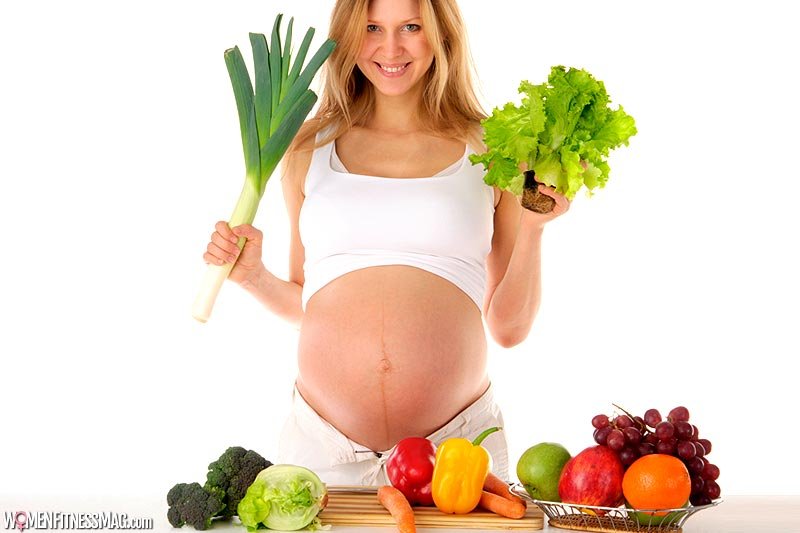Prenatal Vitamins: It’s never too early to start taking a prenatal vitamin! In fact, if you’re thinking about having a baby, you should begin taking a prenatal supplement about three months before you begin trying to conceive. Eggs begin to mature about three months before they are released, so providing them with vital nutrients is crucial to their development even during the earliest stages.
But that doesn’t mean it’s too late to start taking one if you’re already pregnant. Nutrients are vital during every stage of pregnancy, and you should begin taking a prenatal vitamin ASAP. For example, pregnant women should supplement with folate in the first trimester because it could prevent neural tube defects, like spina bifida, when taken at this stage.
If you are wondering which nutrients are important and how to choose the best prenatal vitamin for yourself and your baby, we’re here to help you out. Here’s what every expectant mother needs to know about prenatal vitamins.
Why Prenatal Vitamins are Important for a Healthy Pregnancy
Prenatal vitamins support a healthy pregnancy by providing specific nutrients at the right levels for fetal growth and development, as well as maternal health. According to experts at the Mayo Clinic, pregnant women need higher amounts of specific nutrients when they are pregnant.
It would be great if you could get all the nutrients you need from your diet, but that’s probably not a very realistic goal at any stage of life, much less during pregnancy. Many women experience morning sickness, food aversions/cravings, and other issues during pregnancy that can make it tough to enough of all the right foods every single day.
No diet is perfect and taking a prenatal vitamin each day can fill in the nutritional gaps in your diet to help ensure that all of your growing baby’s nutritional needs are met.
Which Vitamins and Minerals are Most Important for Expecting Moms?
Folate, iodine, Vitamin D, and iron are probably the most important nutrients to look for in your prenatal vitamin, but there are others that should be included as well. Here are the nutrients to look for, as well as what each one does for you and your developing baby.
- Folate: Folate is a B vitamin that your body uses to create new blood cells. It supports normal fetal development in the early stages of pregnancy and may prevent neural tube birth defects. Note that folate and folic acid are not the same things. It’s better to choose a prenatal vitamin that contains folate because it’s the natural form of folic acid and it’s easier for your body to use.
- Iodine: Our bodies use iodine for various metabolic functions. This essential mineral also supports normal fetal brain and nervous system development during pregnancy. Many people are moving away from iodized salt in favor of sea salt and iodine deficiency is becoming more common.
- Iron: Iron is extremely important during pregnancy because it helps deliver oxygen to the developing baby while preventing anemia in the expectant mother.
- Vitamin D: Vitamin D is crucial for building healthy teeth and bones in the baby and for preventing bone loss in the mother.
- Vitamin B12: Expectant moms will appreciate supplementing with vitamin B12 because it is essential for energy production.
- Omega-3 Fatty Acids: Fatty acids are crucial for hearth and brain health in both mom and baby. They also help to fight inflammation in the muscles and joints.
- Probiotics: Many women experience a variety of digestive issues during pregnancy. Probiotics are extremely beneficial for preventing diarrhea, constipation, and heartburn and many other gastrointestinal discomforts. They also support nutrient absorption and a healthy immune system, which are both vital during pregnancy.
- Zinc: Staying healthy throughout pregnancy is important. Zinc supports the immune system, preventing colds, flu, and other illnesses.
- Calcium: Calcium helps build strong bones in the developing baby.
- Vitamin B6: If you’re concerned about morning sickness, you’ll be happy to know that taking Vitamin B6 during the first weeks of pregnancy can reduce or prevent nausea.
Other Things to Look for in Your Prenatal Vitamin
When choosing your prenatal vitamin, look for an organic formula that includes vitamins and minerals in their purest forms. The best organic prenatal vitamins will include an independent seal of approval from the United States Pharmacopeia, NSF International, or Consumer Lab. Getting approval from one of these groups is totally voluntary, and having their seal indicates that the supplement meets the highest standards.
If you are dealing with nausea or have difficulty swallowing pills, try a chewable gummy formula. They are often gentler on the stomach, and they taste great, so it’s easier to get them down even if you’re feeling queasy.
Keep in mind that more isn’t always better. Always follow the recommended dosage and steer clear of formulas that contain fillers and other unnecessary ingredients. If you have any doubts about the quality of your prenatal vitamin, consult with your health care practitioner for advice.
Conclusion
Remember, prenatal vitamins are meant to complement a healthy diet and fill in the nutritional gaps. Eating a well-balanced, nutrient-dense diet is absolutely crucial for a healthy pregnancy. It’s never too early to start taking care of your baby-to-be, so start making positive changes in your diet and taking a prenatal vitamin before you even become pregnant.
Related Videos about Prenatal Vitamins :
The Importance of Prenatal Vitamins
LIVE IT: Importance of Nutrition During Pregnancy
Best Dr Recommended Prenatal Vitamins
When To Start Taking Prenatal Vitamins?
What Do Prenatal Vitamins Do?
Prenatal Vitamins: What Expectant Mothers Should Know
prenatal vitamins for pregnancy, when to start taking prenatal vitamins, best prenatal vitamins 2018, best prenatal vitamins 2019, prenatal vitamins before pregnancy,




